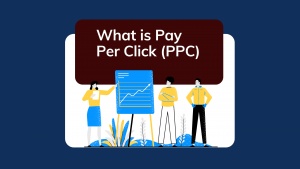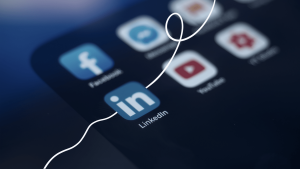The world of social media is revolutionising with every passing day in how we communicate, connect, and consume information. Platforms like Facebook, Instagram, Twitter, and LinkedIn have become integral to our daily lives. As social media continues to evolve, it is poised to surpass traditional marketing methods in effectiveness and reach. This blog will explore how social media will beat traditional marketing and why businesses should embrace this powerful tool.
Targeted Advertising
One of the most significant advantages of social media over traditional marketing is its ability to deliver targeted advertising. Social media platforms have vast user data, including demographics, interests, and online behaviours. This wealth of information allows businesses to target their ads to the most relevant audience precisely.
Unlike traditional marketing channels such as print or television, where a broad range sees ads of people, social media ads can be tailored to specific demographics, locations, interests, and even behaviour patterns. This targeted approach ensures businesses reach the right people with their message, leading to higher conversion rates and a better return on investment (ROI).
Cost-Effectiveness
Traditional marketing methods such as television commercials, radio spots, or print advertisements can be expensive, especially for small businesses with limited budgets. On the other hand, social media provides a cost-effective marketing solution accessible to businesses of all sizes.
Setting up an account on popular social media platforms is typically free, and businesses can run both organic and paid advertising campaigns. Paid ads on social media are often more affordable than traditional advertising channels and offer flexible budgeting options. This affordability allows businesses to reach a larger audience without breaking the bank.
Increased Engagement and Interaction
Social media offers a unique opportunity for businesses to engage and interact with their audience in real time. Unlike traditional marketing methods, which are often one-way communication, social media allows for two-way conversations and feedback.
Businesses can respond to comments, messages, and reviews, creating a sense of authenticity and trust. This engagement fosters a stronger connection between the brand and its audience, leading to increased customer loyalty and advocacy.
Additionally, social media platforms provide various interactive features such as polls, quizzes, contests, and live videos, which can significantly enhance user engagement. These interactive elements make the marketing experience more enjoyable and memorable for the audience, boosting brand awareness and customer loyalty.
Measurable Results and Analytics
Unlike traditional marketing, where measuring the impact of advertising campaigns accurately can be challenging, social media provides robust analytics and tracking tools. Businesses can gain valuable insights into the performance of their social media posts, ads, and overall marketing efforts.
You can easily track the impression rate, the reach of your account, and how many clicks your content has received. This data is mainly analysed as it helps businesses determine whether their strategies are working well. So they can make changes according to their needs.
Measuring results and tracking ROI is invaluable for businesses, as it allows them to allocate their marketing budget more effectively and adjust their strategies based on what works best for their target audience.
Viral Potential and Amplified Reach
Social media can make content go viral, reaching millions of people quickly. A viral post or video can spread like wildfire, creating massive brand exposure and generating organic reach that traditional marketing methods rarely achieve.
Direct Communication
Social media enables direct communication between businesses and their audience. Unlike traditional marketing, which often involves a one-way communication model, social media allows for real-time interactions, feedback, and customer support. You can create live sessions through YouTube and buy 2500 YouTube views to improve its visibility. This direct communication fosters a sense of trust and transparency, building stronger relationships between businesses and their customers.
User-Generated Content:
Social media encourages user-generated content, where consumers create and share content related to a brand. This form of content is highly authentic and significantly influences other consumers. User-generated content serves as social proof, showcasing real customers’ positive experiences and opinions. Traditional marketing methods struggle to replicate the authenticity and trust that user-generated content brings.
Influencer Marketing:
Social media has led to influencer marketing, where businesses collaborate with influential individuals on platforms. Like Instagram and YouTube to promote their products or services. Some even buy Instagram followers UK to make increase their list of followers. Influencers have a dedicated and engaged following, making their recommendations highly impactful. This form of marketing allows businesses to tap into specific niche markets and reach their target audience more effectively than traditional advertising methods.
Real-Time Analytics:
Social media provides businesses with real-time analytics and insights into their marketing efforts. Platforms like Facebook and Instagram offer robust analytics tools that allow businesses to track engagement, reach, impressions, and demographics. This data provides valuable insights into the effectiveness of marketing campaigns, enabling businesses to make data-driven decisions and optimise their strategies in real-time. Traditional marketing methods cannot often provide such detailed and up-to-date analytics.
Global Reach:
Social media has broken down geographical barriers and enabled businesses to reach a global audience. Businesses can potentially reach millions of people worldwide with a single social media post. This global reach surpasses the limitations of traditional marketing, which is often confined to specific regions or local markets. Although TikTok is an Asian app but is popular all over the internet and used globally. Some users buyTiktok likes to increase their viewers trust globally. Social media allows businesses to expand their customer base and connect with consumers from different cultures and backgrounds.
Continuous Engagement:
Social media offers a continuous stream of engagement and interaction. Unlike traditional marketing, which may have limited time slots or publication frequencies, social media platforms are active 24/7. This constant availability allows businesses to engage with their audience anytime, respond to inquiries, and provide real-time updates. Maintaining ongoing engagement strengthens brand loyalty and keeps businesses top-of-mind for consumers.
Final Words
With all these points discussed above, you have found the answer that social media is taking over the place. You need to develop a digital marketing strategy for your business. If you are trying and still getting nothing, you can consult Follwerscart for better options. Also, work on creating video content as it’s getting more engagement than text and images. You should change your working strategies and methods with the changes in the platform’s algorithm.









